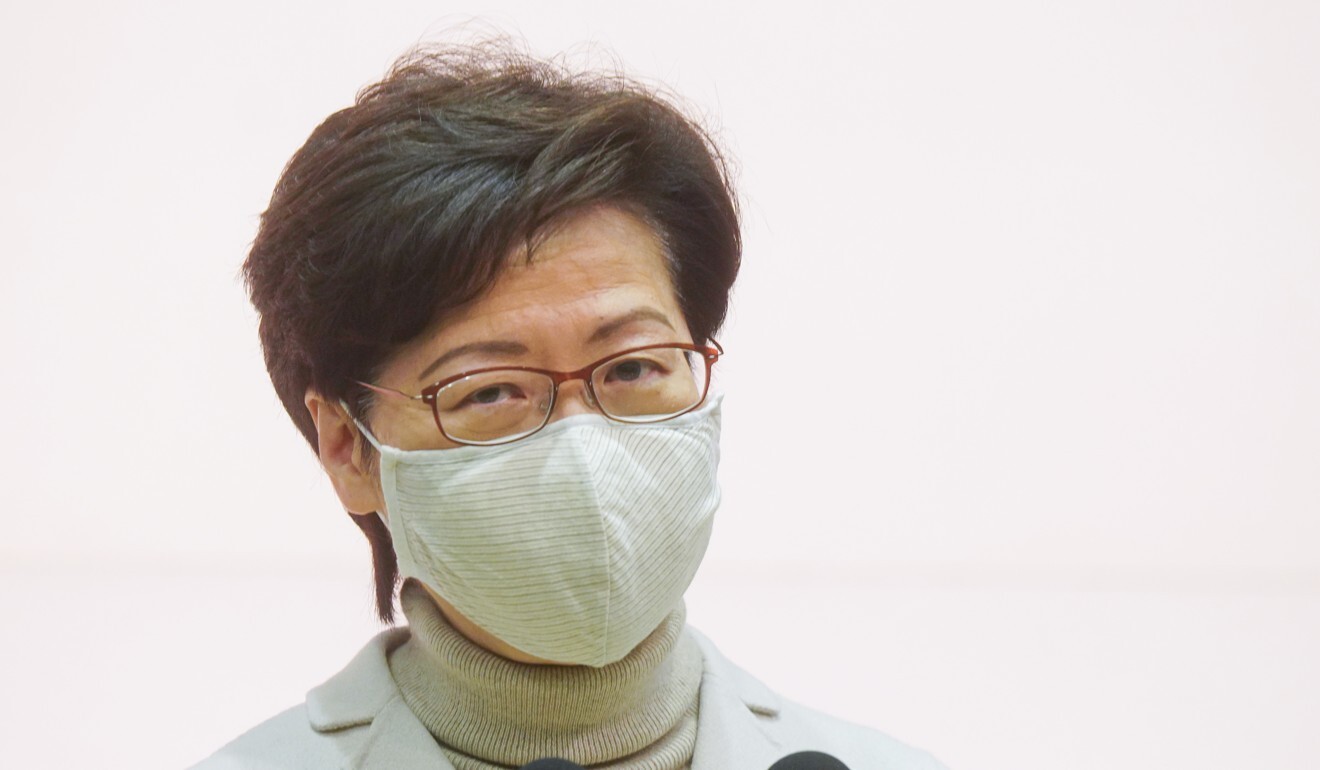
Changes to Hong Kong electoral system a long time coming, Carrie Lam says, citing nearly two decades of protests
- Pointing to resistance to Beijing initiatives stretching back to 2003, city leader applauds officials’ ‘courage and determination to make things right’
- Lam adds she believes recent declaration that ‘patriots’ must run city will not affect the role of foreigners working in the judiciary
Hong Kong’s leader has defended Beijing’s planned overhaul of the city’s electoral system, saying the rancour in the former British colony’s political scene has troubled the central government for almost two decades.
Lam’s remarks came a day after the top Beijing official in charge of Hong Kong affairs declared that the city’s administrative and electoral systems needed to undergo a fundamental revision to ensure only “patriots” held key positions in all three branches of government – the executive, legislature and judiciary – as well as statutory bodies.

Xia Baolong, head of the State Council’s Hong Kong and Macau Affairs Office, also said Beijing had to play a dominant role in revamping the city’s electoral system, but promised the central government would communicate with the local administration and consult different sectors before initiating the changes.
In her weekly media briefing on Tuesday morning, Lam was asked if Beijing had decided to initiate the changes because she had failed to heal the city’s political divide since taking office in July 2017.
“Xia explained on Monday that since the handover [in 1997], whenever the city deals with controversial issues, some people will make remarks that advocate hatred against the central and local governments,” Lam said.
“That included in 2003, when the city’s government made its first attempt to enact national security legislation,” she added, referencing a mass protest on July 1 of that year in which an estimated half million people took to the streets, forcing the administration to shelve the unpopular bill.
Lam recalled there was also fierce opposition when the government tried to make national education a compulsory subject in schools in 2012. Other protests that worried Beijing included the Occupy movement in 2014, the Mong Kok riots in 2016, and social unrest triggered by the since-abandoned extradition bill in 2019, she said.
“This series of events made the central government and I very concerned,” the chief executive said.
“The central government needs to solve the problem so the situation won’t get so bad that ‘one country, two systems’ cannot be implemented. It’s the same with national security and our political systems. There is not much of a direct relationship with whether I am able to create the criteria so we can [launch political reform] in accordance with the Basic Law.”
Lam suggested that because most of the problems she mentioned had existed for a long period, it was now time for mainland and local authorities to “have the courage and determination to make things right”.
Xia’s call for patriots to occupy all key positions on Monday has led to questions about what that means for foreigners with prominent roles in the judiciary and elsewhere.
Under Article 92 of the Basic Law, Hong Kong judges and other members of the judiciary are to be chosen on the basis of their judicial and professional qualities and can be recruited from other common law jurisdictions.
Asked if that could be changed to ensure members of the judiciary were deemed patriotic, Lam said that as the courts exercised judicial power independently, she did not think the rules on judges would be affected by changes to the city’s electoral systems.
Last week, Secretary for the Civil Service Patrick Nip Tak-kuen revealed that the Security Bureau had been studying the possibility of making a new law to protect public officers from being insulted or abused.
Lam on Tuesday said that while many public officers, including those from the police force, had complained about being intimidated, the government had yet to reach a stage of tackling the problem through legislation.

